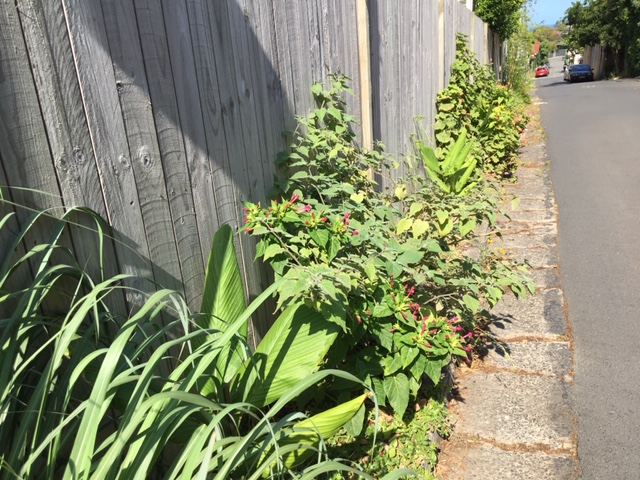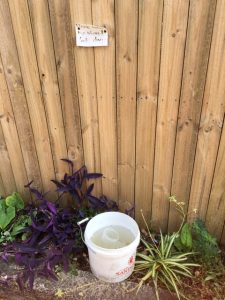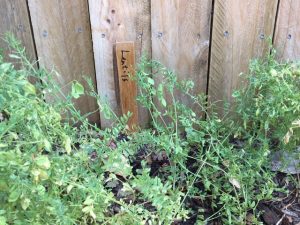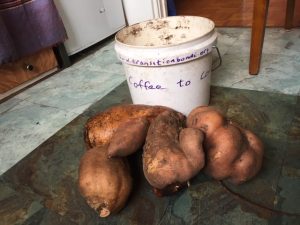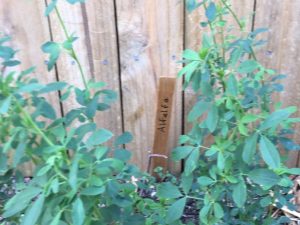The laneways near my home in Bondi, Sydney have been my highway to well-being in the face of the terror and chaos of the fires.
And tending the laneways has been a form of vigil or prayer to Earth amidst the wild destruction that we hear news of in the city, and which visits us in the form of grey skies and smoke-filled air.
Water and Air – now we are all in the same boat, valuing these essentials more than ever, and doing what we can to sustain life. Careful watering of small urban plots to grow food will become more and more the norm, I’m thinking.
For more than three years I’ve adopted several small verge spaces and the result is fulfilling.
Why do it?
- to keep these often neglected areas looking good
- to stop them becoming a place to dump rubbish
- to provide habitat and flowers for insects and small lizards
- to experiment with methods and plants that I’ve learned about (including successional planting, growing lentils, alfalfa, chickpeas and peanuts as well as cuttings from locally thriving plants)
- to make contact with neighbours and passers-by
- to be part of something big – learning how to grow food, observing the weather and the seasons, thinking about the environment and how we can work well together.
- to join the widespread movement for growing food in cities (we’ll need more of this after the bushfires)
Rotating across the plots, this regular pilgrimage involves these things:
- carrying buckets of water and using watering spikes
- conditioning the soil by initially allowing whatever will thrive to grow then selectively removing them
- cutting the tops of dead plants and weeds but leaving the roots intact to rot and add texture to the soil
- raising cuttings and seedlings on my balcony (I live in a block of units) then strategically transplanting them in the most suitable locations
- removing rubbish that collects there, from wind
- clearing overhanging branches and fallen leaves, to keep the roadway clear
- working with the succession of planting: allowing well-established ones to provide a microclimate for vulnerable young ones
Highs and lows:
Recently I harvested 7kg sweet potato – five giant specimens each the size of a hare! This was exciting!
The next day, however, I returned to find that someone had come on a street cleaning blitz and ripped out the sweet potato plants that were providing much-needed shade (as ‘living mulch’) and structure in this hot and windy part of the beachside suburb.
I don’t mind this lack of ‘control’ that is the reality of a caring for a public space. The work survives on its merits, and one needs to think carefully about what is suitable for the situation. Growing tomatoes or passionfruit have led to frustration and disappointment, with passers-by picking them before ripening, to ‘not miss out’. Herbs are more appropriate for that reason. These issues ask us to revisit the concept of ‘the Commons’, and who cares for them.
And the ‘inner’ work is never wasted; we grow ourselves as we tend plants – we develop attunement, patience, dedication, resilience and creative visioning.
I like Paul Kelly’s lyric “From Little Things, Big Things Grow”; and I would add to that: little things can be launching pads for big things! Working with small things does not make us small ourselves. Imagining the future and bringing all that we have in us, together, to fulfil that work, sounds close to the philosophy of the Transition Initiative, to me.
Kit Shepherd, Bondi, January 2020

